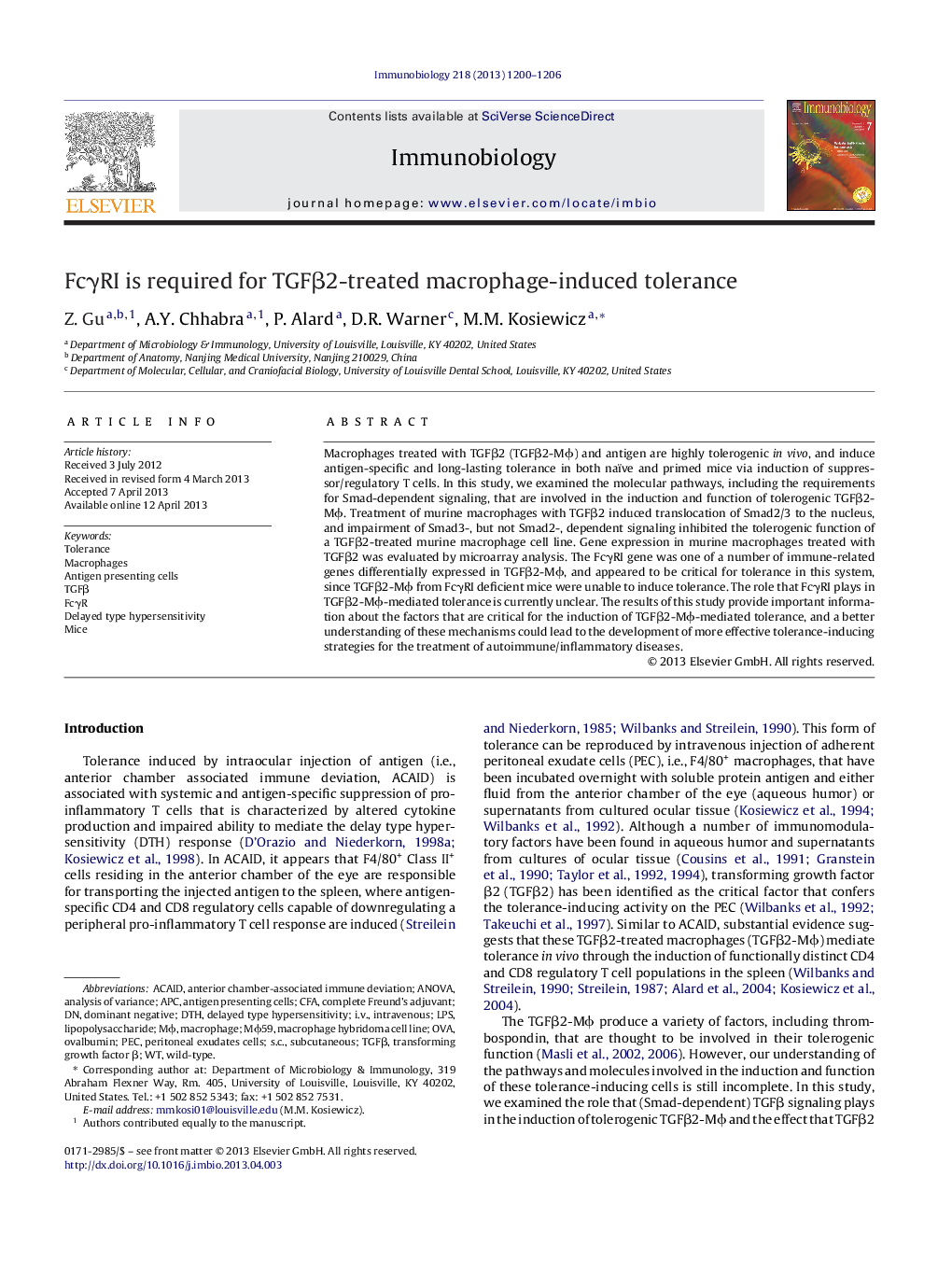| Article ID | Journal | Published Year | Pages | File Type |
|---|---|---|---|---|
| 2183063 | Immunobiology | 2013 | 7 Pages |
Macrophages treated with TGFβ2 (TGFβ2-Mϕ) and antigen are highly tolerogenic in vivo, and induce antigen-specific and long-lasting tolerance in both naïve and primed mice via induction of suppressor/regulatory T cells. In this study, we examined the molecular pathways, including the requirements for Smad-dependent signaling, that are involved in the induction and function of tolerogenic TGFβ2-Mϕ. Treatment of murine macrophages with TGFβ2 induced translocation of Smad2/3 to the nucleus, and impairment of Smad3-, but not Smad2-, dependent signaling inhibited the tolerogenic function of a TGFβ2-treated murine macrophage cell line. Gene expression in murine macrophages treated with TGFβ2 was evaluated by microarray analysis. The FcγRI gene was one of a number of immune-related genes differentially expressed in TGFβ2-Mϕ, and appeared to be critical for tolerance in this system, since TGFβ2-Mϕ from FcγRI deficient mice were unable to induce tolerance. The role that FcγRI plays in TGFβ2-Mϕ-mediated tolerance is currently unclear. The results of this study provide important information about the factors that are critical for the induction of TGFβ2-Mϕ-mediated tolerance, and a better understanding of these mechanisms could lead to the development of more effective tolerance-inducing strategies for the treatment of autoimmune/inflammatory diseases.
